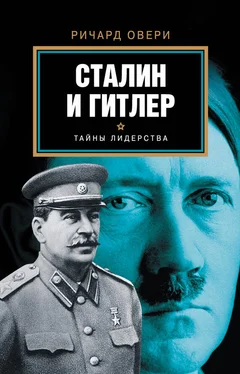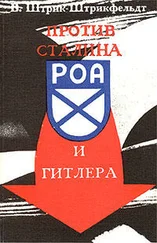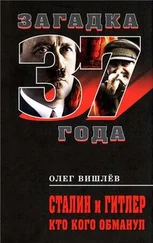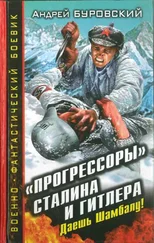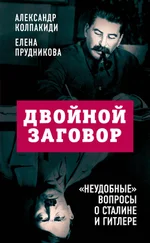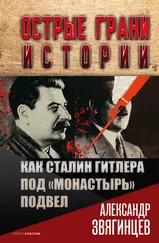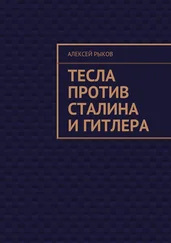Poeppel, D. H., Prinz Wilhelm von Preussen and von Hase, K.-G. Die Soldaten der Wehrmacht (Munich, 1998).
Pohl, J. Ethnic Cleansing in the USSR, 1927–1949 (Westport, Conn., 2002).
Pohl, J. The Stalinist Penal System (Jefferson, NC, 1997).
Pons, S. Stalin and the Inevitable War 1936–1941 (London, 2002).
Pons, S. ‘Stalinism and Party Organisation (1933–48)’, in J. Channon (ed.) Politics, Society and Stalinism in the USSR (London,
1998), pp. 93–114.
Porter, C. and Jones, M. Moscow in World War II (London, 1987).
Pospielovsky, D. V. A History of Marxist-Leninist Atheism and Soviet Anti-Religious Policies: Volume I. A History of Soviet Atheism
in Theory and Practice (London, 1987); Volume II. Soviet Anti-Religious Campaigns and Persecutions (London, 1988).
Potthoff, H. Freie Gewerkschaften 1918–1933: Der Allgemeine Deutsche Gewerkschaftsbund in der Weimarer Republik
(Düsseldorf, 1987).
Prantl, H. (ed.) Wehrmachtsverbrechen: eine deutsche Kontroverse (Hamburg, 1997).
Pulzer, P. The Rise of Political Anti-Semitism in Germany and Austria (London, 1988).
Pyta, W. ‘“Menschenökonomie”: Das Ineinandergreifen von ländlicher Sozialraumgestaltung und rassenbiologischer
Bevölkerungspolitik im nationalsozialistischen Staat’, Historische Zeitschrift, 273 (2001), pp. 31–94.
Quinn, M. The Swastika: Constructing the Symbol (London, 1994).
Raddatz, F. J. Gottfried Benn: Leben – niederer Wahn: Eine Biographie (Munich, 2001).
Radosh, R. and Habeck, M. R. Spain Betrayed: The Soviet Union in the Spanish Civil War (New Haven, Conn., 2001).
Radzinsky, E. Stalin (London, 1996).
Rapaport, Y. The Doctors’ Plot: Stalin’s Last Crime (London, 1991).
Rebentisch, D. ‘Die “politische Beurteilung” als Herrschaftsinstrument der NSDAP’, in D. Peukert and J. Reulecke (eds) Die Reihen
fast geschlossen: Beiträge zur Geschichte des Alltags unterm Nationalsozialismus (Wuppertal, 1981), pp, 107–28.
Redeil, C. (ed.) Transformations in Russian and Soviet Military History (Washington, DC, 1990).
Ree, E. van The Political Thought of Joseph Stalin (London, 2002).
Ree, E. van ‘Stalin’s Organic Theory of the Party’, Russian Review, 52 (1993), pp. 43–57.
Rees, E. A. (ed.) Decision-Making in the Stalinist Command Economy, 1932–37 (London, 1997).
Rees, E. A. ‘Stalin and Russian Nationalism’, in G. Hosking and R. Service (eds) Russian Nationalism Past and Present (London,
1998), pp. 77–105.
Reese, R. R. Stalin’s Reluctant Soldiers: a Social History of the Red Army 1925–1941 (Lawrence, Kans., 1996).
Reibel, C.-W. Das Fundament der Diktatur: Die NSDAP-Ortsgruppen 1932–1945 (Paderborn, 2002).
Reichel, P. ‘Festival and Cult: Masculine and Militaristic Mechanisms of National Socialism’, in J. A. Mangan (ed.) Shaping the
Superman: Fascist Body as Political Icon – Aryan Fascism (London, 1999), pp. 153–68.
Reid, S. ‘Socialist Realism in the Stalinist Terror: the Industry of Socialism Art Exhibition, 1935–41’, Russian Review, 60 (2001),
pp. 153–84.
Reidel, P. ‘Aspekte ästhetischer Politik im nationalsozialistischen Staat’, in U. Hermann and U. Nassen (eds) Formative Ästhetik
im Nationalsozialismus. Intentionen, Medien und Praxisformen totalitärer ästhetischer Herrschaft und Beherrschung
(Weinheim, 1994).
Reilly, J. et al. (eds) Belsen in History and Memory (London, 1997).
Reinhardt, K. Moscow – the Turning Point: the Failure of Hitler’s Strategy in the Winter of 1941–1941 (Oxford, 1992).
Renner, A. ‘Defi ning a Russian Nation: Mikhail Katkov and the “Invention” of National Polities’, Slavonic and East European Review,
81 (2003), pp. 659–82.
Reuth, R. Goebbels (London, 1993).
Rhodes, R. Masters of Death: The SS Einsatzgruppen and the Invention of the Holocaust (New York, 2002).
Rich, N. Hitler’s War Aims (2 vols, London, 1973–4).
Rigby, T. H. The Changing Soviet System: Mono-organisational Socialism from its Origins to Gorbachev’s Restructuring
(London, 1990).
Rigby, T. H. Communist Party Membership in the USSR 1917–1967 (Princeton, NJ, 1968).
Rigby, T. H. ‘Staffi ng USSR Incorporated: The Origins of the Nomenklatura System’, Soviet Studies, 40 (1988), pp. 523–37.
Rigby, T. H. ‘Was Stalin a Disloyal Patron?’ Soviet Studies, 38 (1996), pp. 311–24.
Ritchie, J. M. German Literature under National Socialism (London, 1983).
Rittersporn, G. T. ‘Extra-Judicial Repression and the Courts: Their Relationship in the 1930s’, in P. H. Solomon (ed.) Reforming
Justice in Russia 1864–1996 (New York, 1997), pp. 207–27.
Rittersporn, G. T. Stalinist Simplifi cations and Soviet Complications: Social Tensions and Political Confl ict in the USSR, 1933–
1953 (Reading, 1991).
Rizzi, B. The Bureaucratisation of the World. The USSR: Bureaucratic Collectivism (London, 1985).
Roberts, C. A. ‘Planning for War: the Red Army and the Catastrophe of 1941’, Europe – Asia Studies, 47 (1995), pp. 1293–326.
Roberts, G. ‘The Soviet Decisions for a Pact with the Soviet Union’, Soviet Studies, 44 (1992), pp. 67–87.
Roberts, G. The Soviet Union and the Origins of the Second World War 1933–1941 (London, 1995).
Roberts, J. Walter Benjamin (London, 1982).
Robin, R. Socialist Realism. An Impossible Aesthetic (Stanford, 1992).
Rogovin, V. Z. 1937: Stalin’s Year of Terror (Oak Park, Mich., 1998).
Rogovin, V. Z. Vlasti i oppozi’tsii (Moscow, 1993).
Rohwer, J. and Monakov, M. Stalin’s Ocean-Going Fleet: Soviet Naval Strategy and Shipbuilding Programme 1935–1953
(London, 2001).
Rosefi elde, S. ‘Stalinism in Post-Communist Perspective: New Evidence on Killings, Forced Labor and Economic Growth in the 1930s’,
Europe – Asia Studies, 48 (1996), pp. 959–87.
Roseman, M. ‘Recent Writing on the Holocaust’, Journal of Contemporary History, 36 (2001), pp. 361–72.
Roseman, M. The Villa, the Lake, the Meeting: Wannsee and the Final Solution (London, 2002).
Rosenberg, W. and Siegelbaum, L. (eds) Social Dimensions of Soviet Industrialization (Bloomington, Ind., 1993).
Rosenfeldt, N. ‘“The Consistory of the Communist Church”: The Origins and Development of Stalin’s Secret Chancellery’, Russian
History, 9 (1982), pp.300–324.
Rosenfeldt, N., Jensen, B. and Kulavig, E. (eds) Mechanisms of Power in the Soviet Union (London, 2000).
Rosenthal, B. G. New Myth, New World: from Nietzsche to Stalin (Pittsburgh, 2002).
Rosenthal, B. G. ‘Nietzsche, Nationality, Nationalism’, in A. Freifeld, P. Bergmann and B. G. Rosenthal (eds) East Europe reads
Nietzsche (New York, 1998), pp. 181–206.
Rosenthal, B. G. (ed.) The Occult in Russian and Soviet Culture (Ithaca, NY, 1997).
Rossi, J. The Gulag Handbook (New York, 1989).
Rossman, J. J. ‘The Teikovo Cotton Workers’ Strike of April 1932: Class, Gender and Identity Politics in Stalin’s Russia’, Russian
Review, 56 (1997), pp. 44–69.
Roth, C. Parteikreis und Kreisleiter der NSDAP unter besonderer Berücksichtigung Bayerns (Munich, 1997).
Roth, K. H, Facetten des Terrors. Der Geheimdienst der ‘Deutsche Arbeitsfront’ (Bremen, 2000).
Rousso, H. (ed.) Stalinisme et Nazisme. Histoire et mémoire comparées (Paris, 1999).
Rowley, D. G. ‘Imperial versus national discourse: the case of Russia’, Nations and Nationalism, 6 (2000), pp. 23–42.
Roxburgh, A. Pravda: Inside the Soviet News Machine (London, 1987).
Rubinstein, J. Tangled Loyalties: The Life and Times of Ilya Ehrenburg (London, 1996).
Rummell, R. Lethal Politics: Soviet Genocide and Mass Murder since 1917 (New Brunswick, NJ, 1990).
Читать дальше
Конец ознакомительного отрывка
Купить книгу
